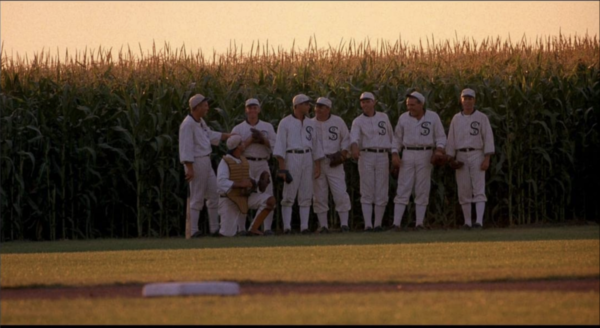So, there you are – dusty, tired, and feeling somewhat downtrodden from being the unwilling recipient of the big “L”. Maybe your baseball game was hard fought to the last inning with both teams being evenly matched, or perhaps the game was a complete blowout long before the 7th inning stretch. Whatever the case, if you find yourself on the losing team, you are granted two choices: you can react emotionally, taking the loss personally or dismissing the loss outright, or you can learn from your loss, redeeming the defeat by using what you have learned to your advantage in the next game. How do you make that second choice, and in what ways can you learn from a big fat “L”?
Be upset, but not for too long
The fact is that no amount of “good game” or “you tried your best” from your friends or family will remove that initial sting of defeat, but that’s ok. It’s all right (and even healthy, at times) to be upset over a loss – it means you realize your own or your team’s shortcomings and that you desire a better outcome. But don’t dwell on that loss by obsessing over the defeat or by blaming your loss on things outside of your control (such as a bad call from the umpire or poor sportsmanship from the other team). Accept the reality of your loss, and move on to the lesson in your defeat. You can move on more easily from a loss by knowing that you’ll learn from your past mistakes and put up an even better fight in the next game.
You learn more from losing
No one likes to hear this saying (mostly because it seldom comes after a victory), but the adage “you learn more from losing” rings very true, especially in the world of sports. Winning can blind you to the shortcomings or faults in your team’s performance, causing you to assume your team had a perfect performance. Losing forces you to acknowledge your shortcomings, and it motivates you to dissect the game and study ways in which you or your teammates could have done better. Learning from losing requires you to be objective and honest about the ways in which you or your team failed and then to take the necessary steps to prevent those failures. It will require humility on your part because you will doubtless have areas of your game that need work, and a good coach or teammate will constructively point that out. Maybe you need more conditioning to keep up with the other team; maybe you need to run more drills to cement the “basics”; maybe your team is composed of excellent players but doesn’t yet mesh as a cohesive unit. Whatever the case, work with your team and your coach to identify your weaknesses, and target those areas with extra practice.
You have to play with the best to become the best
Winners aren’t naturally winners. It takes them an often-lengthy process to get to the pinnacle of their craft, and often it requires a multitude of losses before a coach and a team can iron out their deficiencies and begin to rise above their opponents. Part of the process of becoming better requires playing with those better than yourself. Think about it. Imagine that you are a talented pitcher, but you only ever threw to batters who never swung. You’d certainly win each game by a landslide, but you would never have the need or opportunity to work on your throws or your communication with your catcher. Improving requires an opponent that we can learn from and even seek to imitate. When you lose to a worthy opponent, you can take your loss in stride by studying the attributes of that winning team and seeking to bring those qualities into your own team.
Cut yourself some slack
At the end of the day, regardless of all the things you and your team could have done differently, you can rest easy in knowing that you tried your best and that the next game is a new opportunity to use what you’ve learned to rise above the other team on the sandlot. Don’t dwell on your defeat. Accept it and allow it to breed in you the character necessary for growth in your sport. “A pessimist sees the difficulty in every opportunity; an optimist sees the opportunity in every difficulty.” – Winston S. Churchill
A few final words of advice
All of these steps require some level of proactivity and humility. You must admit your defeat and be bold and diligent enough to do the hard work and becoming better in everything. Whether it’s your form, respecting the other team, running more to become faster, coming up with fundraising ideas, anything! No one likes a loss, but people like sore losers even less. Be gracious to the winners even if they aren’t gracious in return. You improve yourself and represent the sport of baseball well when you can handle a loss with integrity and give credit where credit is due. Don’t worry. Lose well, and you’ll soon find yourself having the opportunity to be the gracious winners instead!










